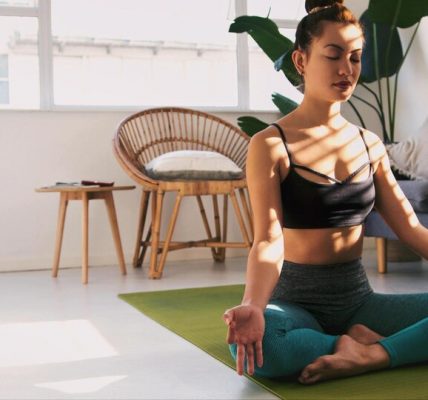In a world filled with stressors and distractions, the quest for physical and mental well-being has become paramount. Martial arts, with their rich history and multifaceted benefits, offer a unique avenue for achieving holistic wellness.
Far beyond the realm of combat and self-defense, martial arts emphasize mindful movements that promote harmony between the body and mind.
This article explores the profound impact of martial arts training on both physical and mental well-being, delving into the various styles and practices that contribute to this holistic approach.
The Essence of Martial Arts
At its core, martial arts encompass a diverse range of disciplines originating from different cultures around the world.
From the graceful forms of Tai Chi to the explosive power of Taekwondo, each martial art has its own unique philosophy and techniques. However, what unites them all is the emphasis on discipline, respect, and self-awareness.
Philosophy and Principles
Central to martial arts philosophy is the concept of balance and harmony. Practitioners are encouraged to cultivate a deep understanding of their bodies and minds, fostering a sense of unity between physical actions and mental intentions.
Through disciplined practice, martial artists aim to develop not only their physical strength and agility but also their inner resilience and focus.
Mindfulness in Motion
Unlike conventional forms of exercise, martial arts place a strong emphasis on mindfulness in movement. Every punch, kick, and block is executed with intention and awareness, requiring practitioners to be fully present in the moment.
This mindfulness not only enhances the effectiveness of techniques but also cultivates a sense of calm and centeredness amidst chaos.

Physical Benefits
Beyond the mental aspects, martial arts training offers a myriad of physical benefits that contribute to overall well-being.
In martial arts clubs, specialized workouts and drills are designed to target specific muscle groups, ensuring balanced physical development and injury prevention.
Strength and Endurance
Martial arts training involves a combination of strength-building exercises and dynamic movements that challenge the body’s limits.
Whether performing a series of punches or holding a low stance, practitioners develop muscular strength and endurance over time. This increased physical resilience not only enhances performance in martial arts but also carries over into daily life activities.
Flexibility and Balance
Flexibility and balance are essential components of martial arts practice, as many techniques require a wide range of motion and precise control.
Through regular stretching and balance drills, practitioners gradually improve their flexibility and proprioception, reducing the risk of injuries and enhancing overall agility.
Cardiovascular Health
Engaging in martial arts training is a highly effective way to improve cardiovascular health. The continuous movement and intensity of training sessions elevate heart rate and stimulate circulation, leading to better heart health and increased stamina.
Over time, practitioners experience improved endurance and a reduced risk of cardiovascular diseases.

Mental Wellbeing
While the physical benefits of martial arts are undeniable, perhaps even more profound are the effects on mental health. Through mindful practice and self-reflection, martial arts offer a pathway to inner peace and emotional resilience.
Stress Reduction
In today’s fast-paced world, stress has become a prevalent issue affecting millions of people worldwide. Martial arts provide a sanctuary from the chaos of daily life, offering practitioners a chance to disconnect from external pressures and focus inward.
The rhythmic movements and meditative aspects of training promote relaxation and stress relief, helping to alleviate tension and anxiety.
Improved Focus and Concentration
The practice of martial arts requires unwavering concentration and mental clarity. Whether executing complex forms or engaging in sparring drills, practitioners must remain fully present and attuned to their surroundings.
Over time, this sharpened focus extends beyond the training mat, enhancing cognitive abilities and improving productivity in daily tasks.
Emotional Balance
Martial arts training instills a sense of emotional balance and resilience in practitioners. By facing challenges and overcoming obstacles on the training mat, individuals learn to manage their emotions and respond calmly to adversity.
This emotional strength not only benefits mental well-being but also fosters healthier relationships and improved conflict-resolution skills.
Styles and Practices
From the ancient traditions of Kung Fu to the modern disciplines of Brazilian Jiu-Jitsu, martial arts encompass a vast array of styles and practices.
Each style offers its own unique approach to physical and mental development, catering to diverse interests and skill levels.
Traditional Martial Arts
Traditional martial arts such as Karate, Judo, and Aikido have deep roots in history and culture, emphasizing discipline, respect, and honor.
These arts focus on striking, throwing, and joint-locking techniques, providing practitioners with a comprehensive understanding of self-defense and personal growth.
Combat Sports
Combat sports such as Boxing, Muay Thai, and Mixed Martial Arts (MMA) have gained popularity for their dynamic and competitive nature.
These disciplines prioritize practicality and effectiveness, incorporating a combination of striking, grappling, and ground-fighting techniques. While the focus is often on competition, combat sports also offer valuable lessons in discipline and perseverance.
Join combat sports classes to embark on a journey of physical and mental transformation. Through martial arts training, discover the power of discipline, focus, and resilience.
Mind-Body Practices
Mind-body practices such as Tai Chi, Qigong, and Yoga blend martial arts movements with meditative principles, promoting holistic health and well-being.
These gentle yet powerful practices emphasize breath control, relaxation, and mindfulness, helping practitioners cultivate a deeper connection between body and mind. With their low-impact nature, mind-body practices are accessible to individuals of all ages and fitness levels.

Conclusion
In a world where physical and mental well-being are increasingly valued, martial arts offer a holistic approach to self-improvement and personal growth. By integrating mindful movements with ancient wisdom and modern science, martial arts training provides practitioners with a pathway to physical fitness, emotional resilience, and inner peace.
Whether seeking to enhance physical strength, reduce stress, or cultivate a sense of balance, the practice of martial arts offers something for everyone. So, step onto the training mat, embrace the journey, and discover the transformative power of mindful movements.






